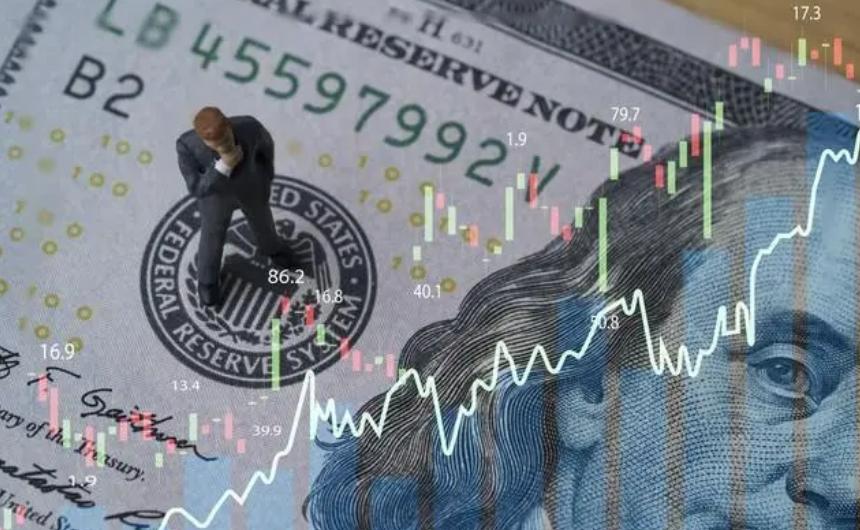
Recently, the news from the Federal Reserve has surprised the world: interest rate hike! This time they raised interest rates from 5.25% to 5.5%, which seems like a tiny 0.25%, but it was big enough to send tremors through the global economy. This also makes many people begin to worry that the United States will play a big role in the economic stage, and may even have to carry out a so-called "harvest" in the global economy.
So why is the US so fixated on raising rates? What is the impact of this? First, the impact on the US economy, the main purpose of raising interest rates is to control inflation, by raising borrowing costs to restrain consumption and investment, thereby slowing down the speed of price rises. However, it also carries the risk of slowing economic growth. Higher interest rates lead to higher borrowing costs, and the willingness of businesses and individuals to invest and consume may be inhibited, thus affecting economic growth. A higher interest rate environment could cause businesses to invest less and consumers to spend less, leading to a slowdown in economic activity. The national debt is already quite large, and raising interest rates means the government needs to pay higher interest, which will further increase the fiscal burden. In addition, the high interest rate environment may also lead to the bankruptcy of some businesses and individuals, increasing the risk of the financial system. Higher rates could lead to volatility in financial markets, including stock, bond and currency markets. Investors may reevaluate asset allocations, leading to uncertainty in the market and seeking higher yield or lower risk investment opportunities.
The second is the impact on the global economy, the US dollar as the world's main reserve currency, its interest rate changes will attract global capital flows. A rise in interest rates would lead to a rise in the value of the dollar, which would make US exports more expensive in the international market and less competitive. This could have a negative impact on US exporters and related industries. Higher interest rates attract capital inflows into the US, thus exacerbating capital outflows and currency depreciation pressures in emerging market countries. This could lead to financial market volatility and economic slowdown in these countries. A stronger dollar makes U.S. exports more expensive and less competitive on world markets. At the same time, the cost of other countries' imports will also increase, potentially triggering imported inflation. For highly indebted countries, higher US interest rates could push up their debt servicing costs and increase the risk of debt defaults. This could lead to instability in global financial markets and trigger a chain reaction that would have a bigger impact on the global economy. In the context of the global economy has not yet fully recovered, the US interest rate hike may bring uncertainty to the global economic recovery. Some countries that rely on external financing may face financing difficulties and economic slowdown risks, thus affecting the overall recovery process of the global economy.
The third is the impact on the economic policies of various countries. Although the US interest rate hike may consolidate the global dominance of the US dollar in the short term, in the long run, too high interest rates may trigger economic recession and financial market turbulence, thus weakening the international status of the US dollar. Moreover, with the rise of emerging economies and the rise of de-dollarization, the hegemony of the dollar is facing challenges. In order to cope with the capital outflow and currency depreciation pressure caused by the US interest rate hike, some countries may be forced to follow the interest rate hike or adopt other tightening monetary policies. However, this could further depress economic growth and increase the debt burden. As the US raises interest rates and the dollar strengthens, some countries may accelerate the process of de-dollarization, reducing their dependence on the US dollar and seeking alternatives to other currencies or payment methods. This will help reduce the impact and risks of dollar hegemony on the global economy. In the face of the global economic challenges brought about by the US interest rate hike, countries need to strengthen international cooperation and coordination to jointly cope with risks and challenges. By strengthening policy communication and coordination, countries can jointly safeguard global economic stability and prosperity.
To sum up, the negative impact of another US interest rate hike to 5.5% is multi-faceted, not only putting pressure on the US economy itself, but also likely to have multiple far-reaching effects. For the global economy, this is both a challenge and an opportunity, which requires countries to strengthen cooperation and coordination to jointly address risks and challenges. Therefore, countries need to pay close attention to the dynamic changes in US economic policy and take corresponding measures to deal with potential risks and challenges.

Since 2022, the Fed has cumulatively reduced its balance sheet by $2.4 trillion through quantitative tightening (QT) policies, leading to a near depletion of liquidity in the financial system.
Since 2022, the Fed has cumulatively reduced its balance sh…
On December 11 local time, the White House once again spoke…
Fiji recently launched its first green finance classificati…
Recently, the European Commission fined Musk's X platform (…
At the end of 2025, the situation in the Caribbean suddenly…
The U.S. AI industry in 2025 is witnessing a feverish feast…